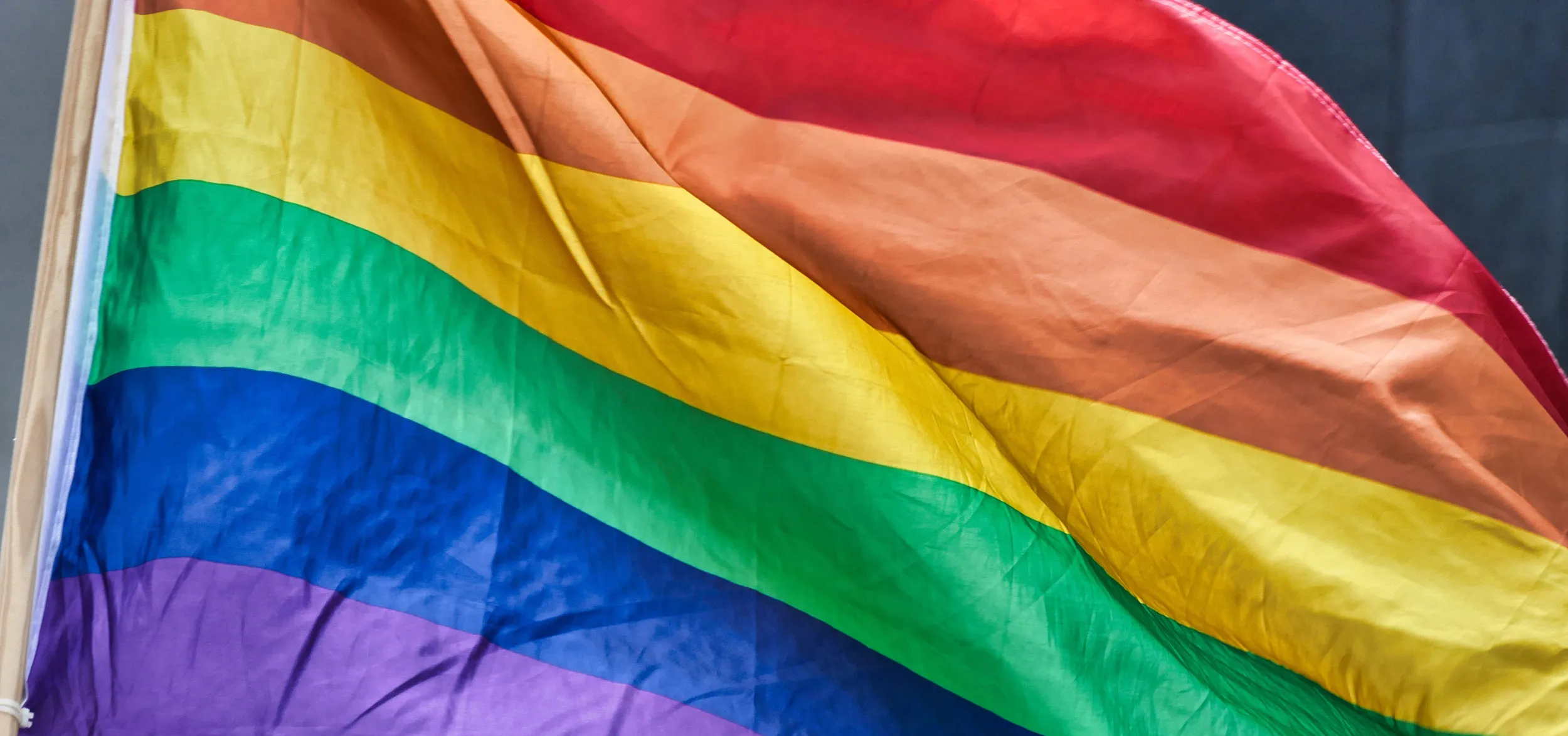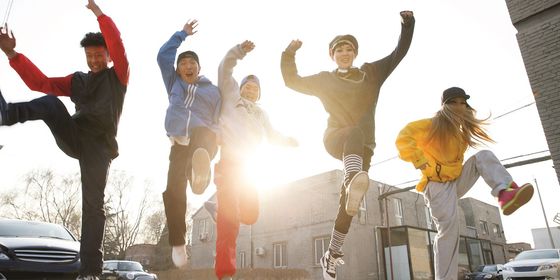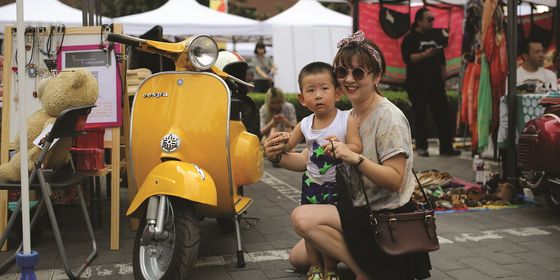The jiulinghou fight for LGBTQ rights—from our cover story
Wow! You look so much like Li Yuchun!
“I get that a lot. All the time,” sighs Xue Ting (pseudonym), gesturing toward her short, cropped hair. “And I’m definitely not the only one. In fact, if you’re a ‘T,’ I guarantee you’ve been compared to Li Yuchun at some point or another.”
Xue is a 26-year-old aspiring academic and lesbian activist from Shenzhen. Like many other “Ts”—“tomboy” or “toms”—Xue’s boyish haircut and sleek street style clothing are constantly likened to the Super Girl contest winner, Li Yuchun. “I don’t know if it’s meant to be a compliment,” Xue says with a dry chuckle. But whether or not she welcomes the comparison, Li is among the most important icons for China’s post-90s’ lesbians, or lalas.
It was over a decade ago that Li captured the hearts of the 400 million viewers of the televised contest, whose popularity surpassed even CCTV’s annual Spring Festival Gala. Though to this day, viewers disagree over her singing and dancing talent, Li’s style, consisting of little to no makeup and casual streetwear, produced an unprecedented craze. Her young fans found her unapologetically shuai (帅, “handsome”) and different—and even middle-aged mothers swooned over her “clean” image which, according to Xue, “represented the perfect single child.”
More importantly Li was a key figure for many young girls figuring out their identity in the early 2000s. “Li Yuchun helped lesbians,” Xue says, explaining how her peers used Li as a sort of leverage or conversation primer to come out to their parents. “They would say something like, ‘Mom, since you are a Li Yuchun fan, would you still love her if she did this or did that? Would you still be a fan if she were a lesbian?’” And finally, “‘What if I told you that I’m a lesbian?’”

Contrary to what some might assume, “it was actually quite easy being a lesbian at school,” says Xue, who began dressing in the T style at an early age, first out of comfort, and later as part of her identity as a queer youth. “I felt no pressure at all; girls would confess [romantic feelings] to me all the time, and I was buddies with all the boys too.” When she attempted “transitioning” to being a “P”—or queer community term for “pretty,” “lipstick lesbian” in Western terms—“some of the boys would say ‘add oil!’ to encourage me,” she recalls.
But though Xue experienced acceptance of the T aesthetic, and even same-sex attraction, while growing up, for the adult self, being queer is still an intense negotiation for the personal, public, and political in China. Characterized as “innocent” and “non-polluting” like Li, androgyny is celebrated without discussion of sexuality. It’s rare for any public figure to discuss their alternative sexuality; by contrast, in the West, celebrities openly push to change public perceptions of queerness.
There is even a concerted effort to “de-sexualize” queerness, exemplified by FFC-Acrush, an up-and-coming “boy” band that’s actually made up of six androgynously styled women. From Li to FCC-Acrush, public figures walk a complicated line between being celebrated for their gender fluidity–or at least, nonconformity—yet treated as almost asexual as a result.
This is a major reason why xinghun, short for “marriages of formality (形式婚姻),” has become prevalent, especially in areas outside China’s cosmopolitan cores of Shanghai, Shenzhen, and Beijing. China GayLes, one of the mainland’s oldest xinghun matchmaking sites, claimed to have 390,000 registered users as of 2015. Based on matchmaking experiences in Xinjiang, China’s remote west, the site claims that over 80 percent of queer individuals between 30 and 60 were choosing xinghun.
Among post-90s, though, interest in xinghun is reported to be waning. “A lot of jiulinghou just come out of the closet instead; their ‘post-70s’ parents…are accepting,” Xiao Jing, a matchmaker, told Xinhua. On Baidu’s xinghun forum, post-90s users critiqued xinghun as “irresponsible,” potentially harming other queer people, though the OP conceded, “Perhaps I am still young, and my notions are immature and idealistic.” Indeed, in a 2017 survey by the Rainbow Lawyers, an LGBTQ advisory group, 45.9 percent of participants said they chose xinghun out of “family pressure to get married”—pressure that tends to increase as a person ages.
For Xue, these constant and intense negotiations between self and the collective, tradition and individual desires, define her experience of being a young, queer woman in China. Blogging about the emotional turmoil of coming out to her mother, she wrote, “While there’s no child who can meet every one of their parents’ expectations, to hurt your family because of who you are is perhaps the biggest cause of guilt.
“This is why I encourage us to change this society’s idea of what love is, so that life for the next generation can be easier, more free.”












